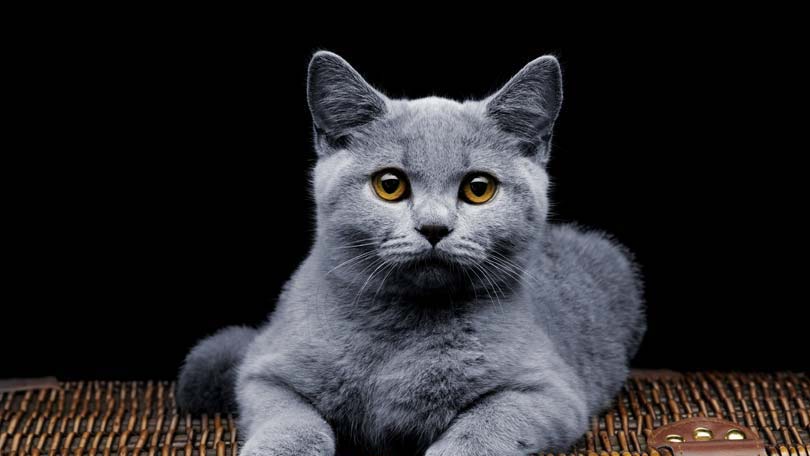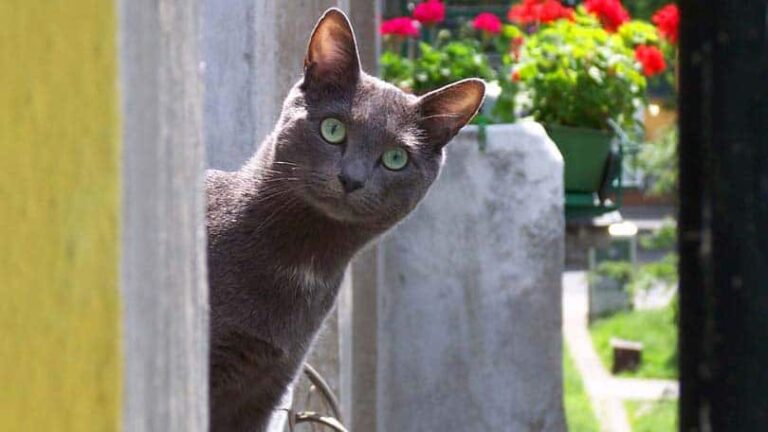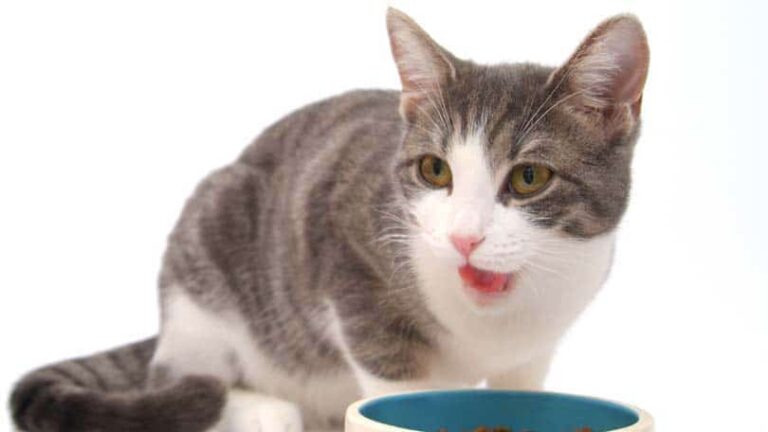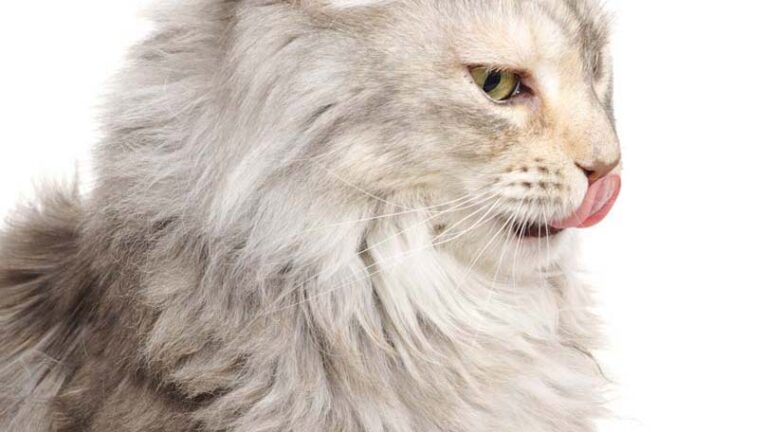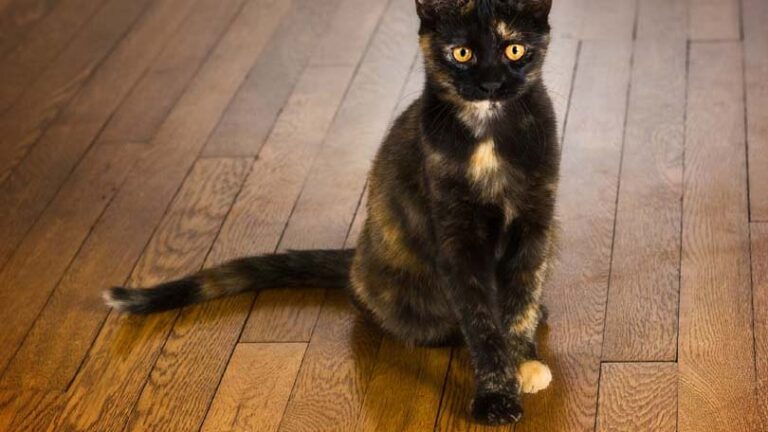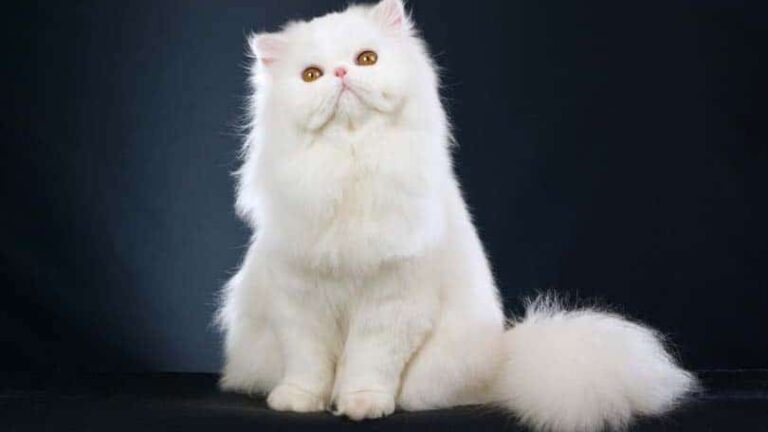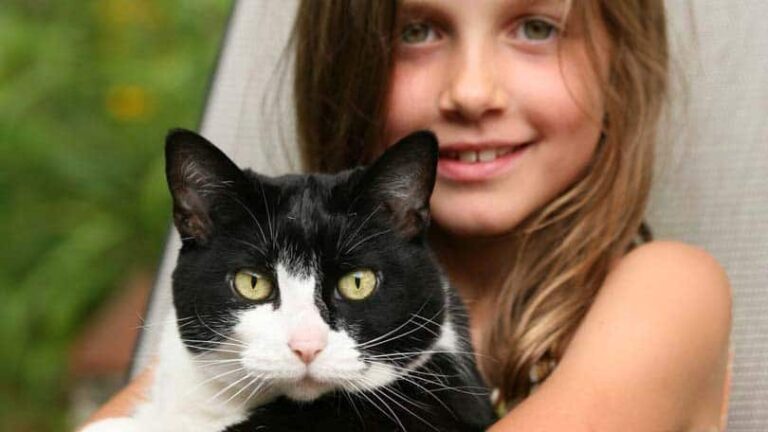Should Cats Drink Milk?
Many people who own a cat think that milk is an important part of a cat’s diet. This is not true. In fact, milk does not meet any of the nutritional needs of a cat. So, should cats drink milk? Many veterinarians would say “no”.
While old movies often show cats contentedly feeding on a bowl of milk or cream, the fact is that a cat could not survive if her diet consisted of only milk. Not only does milk fail to meet any of the nutritional needs of a cat, it can even cause health problems for some cats.
The reason for this is that most cats are lactose intolerant. Cats lack the enzyme, called lactase, which allows them to properly break down milk. For such cats, drinking milk can lead to digestive problems including diarrhea.
While there is no reason that cats need to drink milk, some owners just enjoy giving it to them. As long as the cat is not lactose intolerant, there is no problem with giving a cat an occasional treat of milk.
Unfortunately, a little trial and error is the only way to find out if your cat is, in fact, lactose intolerant. To find out you will have to give her a little milk. If she does not have any symptoms, then it is safe to assume she is not lactose intolerant – at least right now. In this case, it is safe to give her milk as a treat once in a while.
Some pet owners who DO have a cat that is lactose intolerant STILL want to give the cat milk. Why? Because she seems to like it. That is not a good reason to feed something to your cat that has potential to harm it. Just like you would not allow a child to eat candy each night for dinner (even though he seemed to like it) you should not give milk to a cat that is developing digestive symptoms as a result. The cat knows what tastes good, but she doesn’t necessarily know what is good for her health. As her caretaker, it is your job to help your cat be healthy and happy. This does not include allowing the cat to eat whatever she wants.
The health problems that can come from a lactose intolerant cat drinking milk can become more serious than a case of diarrhea or upset stomach. The symptoms exhibited by a cat that is very lactose intolerant can cause the cat to become seriously dehydrated which, if not treated, can be fatal.
Of course, many cat owners enjoy giving their cats treats, but there are plenty of other ways to give your cat something special in her food bowl. There is even a way for her to enjoy milk – just not cow’s milk.
Many pet stores sell a milk substitute that is specially formulated for cats. Sold in single serving cartons, this lactose-free milk substitute allows your cat to enjoy a favorite treat without harming her health or making her uncomfortable.
Another option is to offer an occasional bowl of soy milk. Some vets say that this is a good alternative to cow’s milk. Again, this should not be given every day or as a substitute for food or water, but just as a treat. Remember, that just as individual people react differently to various foods, so do cats. What might be fine for one cat could upset the digestive system of another. While soy milk is generally well-tolerated by cats, watch for symptoms after giving her some for the first time. Obviously, if any symptoms develop, do not give her soy milk in the future.
With all of that being said, there are thousands of cat owners who still give their cats a little milk every day. Most say their cats have no adverse symptoms and they see no reason to stop. Again, the answer to the question “should cats drink milk” is generally “no”. That does not mean that every cat on the planet is going to exhibit symptoms.
Thus far, the article has addressed whether or not cats should drink milk including cow’s milk and soy milk. What has not yet been addressed is the need that kittens have to drink their mother’s milk.
Kittens absolutely need to drink their mother’s milk, typically until around 8 weeks of age, and that is a minimum. Many vets say the kittens should not be separated from the mother until closer to 12 weeks of age. Even though some may stop nursing sooner than that, kittens should not be removed from their mother until they are – at the very least – 8 weeks old.
One of the reasons that a kitten needs to stay with its mother for the appropriate amount of time is that the kitten needs to drink the mother’s milk. It is through this milk that the kitten will obtain antibodies that will help to keep it healthy throughout its entire life. Kittens that do not get these antibodies when they are young will be subject to a host of health problems, and many will not survive.
For kittens that have been orphaned, their best hope for a long and healthy life is to have someone take over as surrogate mother. This includes providing the kitten with a substitute for the mother’s milk that contains the needed antibodies.
While the best thing for a kitten is the mother’s milk, this replacement formula, which is available from your vet or at most pet supply stores, is the only option for a kitten that cannot, for whatever reason, nurse from its mother.
Be sure to follow the feeding guidelines on the packaging of the milk substitute to be sure the kitten is getting all of the nutrition that it requires to grow and to be healthy.
So kittens definitely need their mother’s milk, or a good substitute, but no cat needs cow’s milk or soy milk.
Once the kitten is weaned, there is no reason to ever give the cat milk again. If, however, you are one of those owners who insist of giving the cat milk anyway, here are some things to keep in mind.
- Cats who are not lactose intolerant can become so as they age. For this reason, keep an eye on your cat whenever you feed her some milk. If you see any signs that she is developing digestive problems, cease giving her milk immediately.
- Giving cat milk, especially full fat milk, can cause a cat to become overweight. Even if you do give your cat milk, it should be in small quantities. Monitor the cat’s weight. If she starts showing signs of being overweight, the treats –
- including milk – should be the first thing to go. Switching from full fat to skim milk is another option.
- Try mixing just a couple of tablespoons of milk with some water. This lessens the impact the milk will have on your cat’s weight.
- Don’t give milk every day. It should just be a treat.
- As mentioned earlier, never use milk as a replacement for food or water. Milk contains none of the nutrients, such as taurine and omega-3 fats, that cats require to be healthy. Cats must eat a food that meets these needs.
Should cats drink milk? Other than kittens nursing from their mothers or orphaned kittens being given a replacement for mother’s milk, the best answer is no. While some cats show no symptoms, they can occur at any time. Why take the chance?
The safest course of action for your cat is to just refrain from giving her milk. There are plenty of other ways to treat your cat. Even the pet owners who feel they must give milk have the option of giving their pets the milk that has been specially formulated for them.
Find other ways to give your cat something special, such as offering wet food to a cat that normally eats only dry. Another option for cats that eat dry food is to add some specially formulated gravy (sold at most pet food stores) to moisten their dry food and give it some extra flavor.
Giving milk to cats, while not always harmful, is just not necessary. Why even take a chance of making your pet sick? Avoid giving cow’s milk to your cat. It’s the best way to avoid any potential problems.

Having discovered a fondness for insects while pursuing her degree in Biology, Randi Jones was quite bugged to know that people usually dismissed these little creatures as “creepy-crawlies”.

